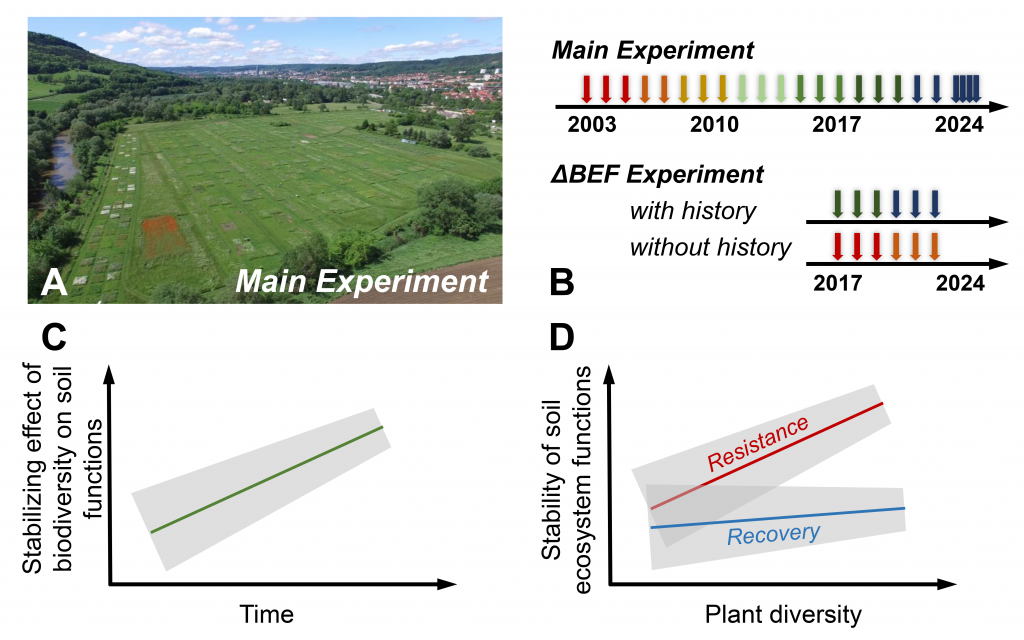New publication from Eisenhauer et al. in Research Ideas and Outcomes: Plant diversity effects on soil multistability
Soil is the basis for life on Earth as we know it. Healthy and stable soil is a prerequisite for well-functioning terrestrial ecosystems and has, thus, been proposed to play a key role in plant diversity–ecosystem functioning relationships. The overall objective of this sub-project is to study multidimensional soil stability as affected by plant diversity in a long-term plant diversity experiment. We designed three coordinated work packages (WPs) to comprehensively assess soil multistability to environmental fluctuations and climate extremes by considering the biological, chemical and physical dimensions that are key for soil functioning. We will use all unique facilities and approaches of the Jena Experiment Research Unit by combining synthesis of long-term data in the Main Experiment and the ΔBEF Experiment with performing new soil analyses in the DrY Experiment, the ResCUE Experiment and a joint CoMic Experiment, to gain a better mechanistic understanding of plant diversity–ecosystem functioning relationships. In close collaboration with other sub-projects, we will assess biological, chemical and physical soil properties and stability indicators that will be used to calculate soil multifunctionality and multistability indices. In WP1, we will build on three unique datasets to explore short-term and long-term effects of plant diversity on the stability of soil (microbial) properties. In WP2, we will combine different datasets and approaches to explore if plant diversity effects on the magnitude and stability of soil properties increase with abiotic and biotic stresses. In WP3, we will combine measurements of the above-mentioned dimensions of soil stability to explore if plant diversity increases the stability of multiple soil properties under hot drought. This sub-project is at the heart of the Research Unit by testing the overarching hypotheses outlined in the Coordination Proposal of the Jena Experiment, contributing to all main experiments, sharing data and performing joint sampling campaigns with all sub-projects and, at the same time, introducing a novel concept of soil multistability as affected by plant diversity and climate extremes. We propose to use a combination of simple, high-throughput (e.g. bait-lamina test) and more sophisticated methods (e.g. extracellular polymeric substances analyses) to be able to investigate temporal dynamics of soil processes and their mechanistic basis. Taken together, the results of the three WPs will provide new insights into the stabilising mechanisms of soil properties in the long term and in relation to climate extremes through plant diversity.

Reference:
Eisenhauer, N., C. Vogel, L. A. D. Horta, A. B. Asato, Z. Janda, et al. 2024. Plant diversity effects on soil multistability. Research Ideas and Outcomes 10:e127123. https://doi.org/10.3897/rio.10.e127123.



